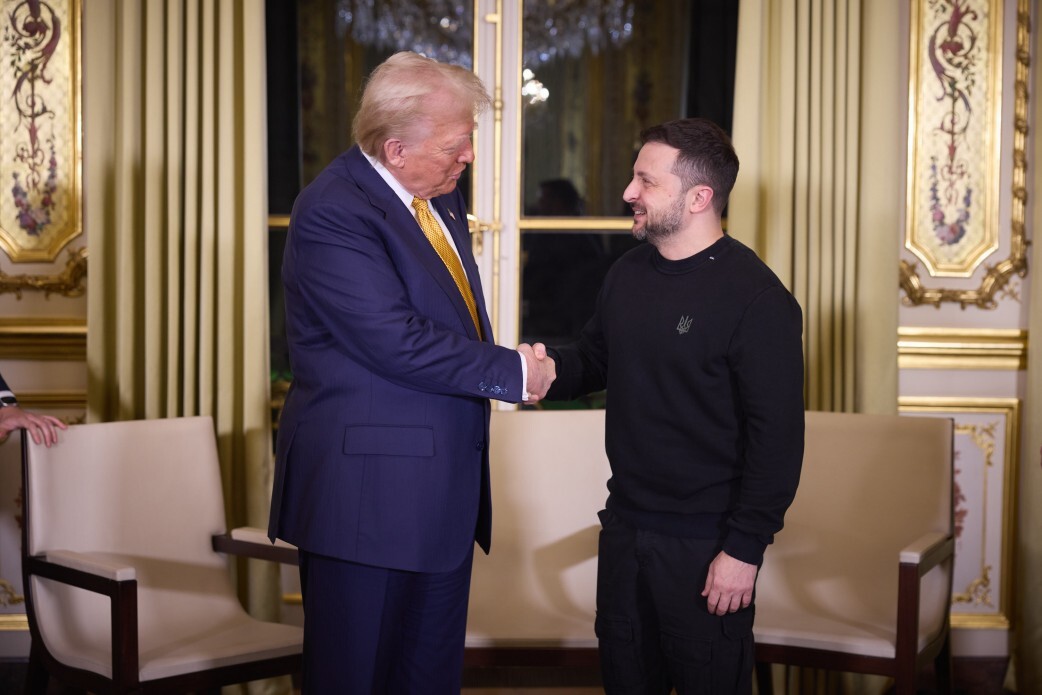Ukraine hints at end to 'hot war' with Russia in 2025
Could the new year see an end to the worst European violence of the 21st Century?


A free daily email with the biggest news stories of the day – and the best features from TheWeek.com
You are now subscribed
Your newsletter sign-up was successful
For nearly three years, Russia and Ukraine have been locked in an intractable-seeming conflict that has thrown not only the two nations into a state of prolonged chaos but huge swaths of Eastern Europe as well. While ostensibly a war over territorial expansion and ethnic sovereignty, the violence between Moscow and Kyiv has grown into a referendum of sorts on NATO and the state of post-Cold War geopolitics. With tens of thousands of deaths on both sides of the conflict and tactical support for both Russia and Ukraine pouring in from allied nations around the world, the war may not be a World War. But it is certainly a global one.
Ukrainian President Volodymyr Zelenskyy In recent weeks has begun signaling a willingness to enter a new phase of his conflict with Russian President Vladimir Putin. "If we want to stop the hot phase of the war," Zelenskyy said in an interview with the UK's Sky News, "we need to take under the NATO umbrella the territory of Ukraine that we have under our control" so that Putin would be prevented from capturing more disputed land. Ukrainian territory currently under Russian control would then be returned "in a diplomatic way."
While hostilities are ongoing, Zelenskyy's seeming openness to downgrading the conflict from its current state has been taken by many analysts as a sign that 2025 could be a major milestone toward ending Europe's worst warfare since World War II. But openness and actual peace are two very different entities, and as is probably to be expected with a vast and complicated geopolitical conflict, opinions vary.
The Week
Escape your echo chamber. Get the facts behind the news, plus analysis from multiple perspectives.

Sign up for The Week's Free Newsletters
From our morning news briefing to a weekly Good News Newsletter, get the best of The Week delivered directly to your inbox.
From our morning news briefing to a weekly Good News Newsletter, get the best of The Week delivered directly to your inbox.
Zelenskyy's 'subtly shifting' messaging
Having "long vowed to fight for every last inch of his country's land," Zelenskyy's pivot towards if not a diplomatic solution than at least a diplomatic stopgap is a "major shift for the Ukrainian leader," The Washington Post said. Around a fifth of Ukrainian territory is under Russian control, and Zelenskyy's suggestion that NATO membership could cool the open warfare is the first time he's "hinted at a ceasefire deal that would include Russian control of Ukrainian territory," Sky News said.
A recent poll, conducted from Nov. 29 to Dec. 14 through "face-to-face interviews with 1,518 respondents aged 18 and older across all government-controlled territories of Ukraine" found nearly half of Ukrainians supported NATO membership "even if some Ukrainian territories remain under Russian occupation," The New Voice of Ukraine said.
That Zelenskyy is "subtly shifting his rhetoric about ending the war with Russia" to include an "openness to ceding territory, even temporarily" marks a "significant concession" for the Ukrainian leader, The Wall Street Journal said. He reinforced that shift in a separate interview with Japan's Kyodo News, insisting that "we do have to find diplomatic solutions" to the conflict — an admission, Kyodo News said, that the "Ukrainian military's current strength is not sufficient to recapture some of the Russian-occupied parts of the country."
Zelenskyy continued to frame NATO membership as a potential off ramp for the fighting in remarks to Ukraine's diplomatic corps this month, when he stressed the need to "fight to persuade allies to allow it to take up NATO membership," which he said was "achievable," The Guardian said. The remarks coincided with a "shake-up of his diplomatic team, including Kyiv's envoy to the United Nations," Newsweek said.
A free daily email with the biggest news stories of the day – and the best features from TheWeek.com
A 'new urgency' ahead of a new administration
Zelenskyy's openness to a diplomatic process, while a potentially positive sign, would still require "a lengthier process and the agreement of all member states" before actual NATO membership would be pursued, The Associated Press said. At the same time, there remains "uncertainty as to the foreign policy stance of U.S. President-elect Donald Trump" who "twice refused to directly answer a question about whether he wanted Ukraine to win the war — raising concerns that Kyiv could be forced to accept unfavorable terms in any negotiations."
Accordingly, Trump's reelection has "given new urgency to negotiation efforts," The Wall Street Journal said. Zelenskyy's shifting rhetoric is a sign that his government "understands things are going to change" with the incoming administration, said former U.S. Ambassador to Russia Michael McFaul to The Washington Post. Trump's election has afforded Zelenskyy an out from his staunch refusal to cede any territory, McFaul said. Zelenskyy can now say to his constituents that he would have "loved to have done that, but Trump has come in and things have changed."
At stake is not simply Ukraine itself, but the global implications of any adverse deals for Ukraine. NATO seems to want to avoid North Korea, China, Russia and Iran high-fiving "each other because we got into a bad deal," said NATO Secretary-General Mark Rutte to The Journal.
Rafi Schwartz has worked as a politics writer at The Week since 2022, where he covers elections, Congress and the White House. He was previously a contributing writer with Mic focusing largely on politics, a senior writer with Splinter News, a staff writer for Fusion's news lab, and the managing editor of Heeb Magazine, a Jewish life and culture publication. Rafi's work has appeared in Rolling Stone, GOOD and The Forward, among others.
